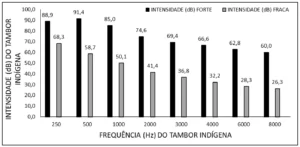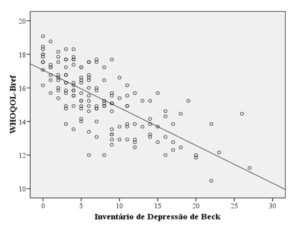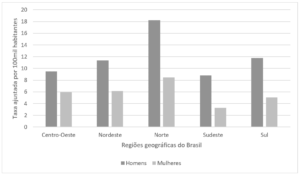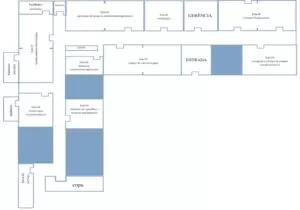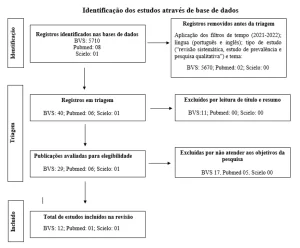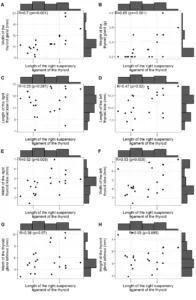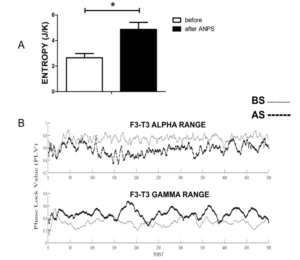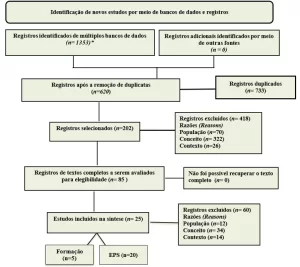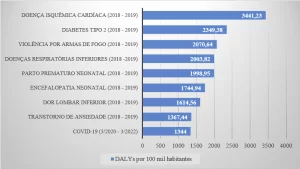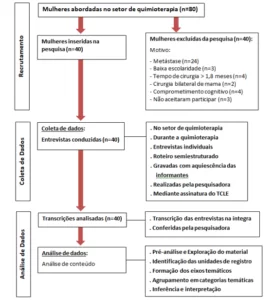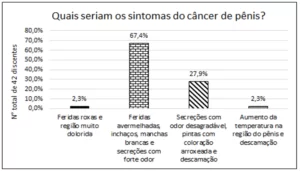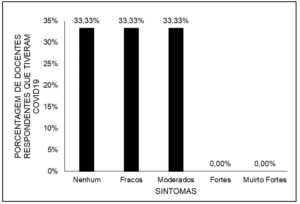SILVA, Dulciléia Martins da [1], DENDASCK, Carla Viana [2], OLIVEIRA, Euzébio de [3]
SILVA, Dulciléia Martins da; et.al. The Social Worker’s Attendance to Cancer Patients. Multidisciplinary Scientific Journal. Issue 08, Year 02, Vol. 05, pp. 39-51, November 2017. ISSN:2448-0959
ABSTRACT
Objective: to analyze the intervention of the Social Work professional to the patient of the Oncology area, given the problematic related to the theme, that is, the difficulties encountered by patients affected by cancer in the adaptation to the hospitalization and the treatment of the disease, considering that cancer is still considered a stigmatizing disease. Methodology: a bibliographic review study was carried out between the years 2010 and 2015. Results: Cancer is a stigmatizing disease, giving rise to a process of signification, generated by the perception that the disease makes possible the reformulation of preconceptions and the elaboration of new concepts about having an incurable disease; caring for the cancer patient implies being aware of the disease as well as learning to deal with the feelings of these patients and with their own emotions towards the disease as well as their relatives; the intervention of the Social Service aims to provide reception, care and social support and, thus, identify problems that may compromise the treatment of the disease, as well as affect the life of the patient and their families. Conclusions: The attention of the Social Service makes it possible to improve the quality of life of cancer patients, since the attention to the patient of a disease that causes significant changes in the behavior of the individuals generates needs to be met and, thus, the Social Worker exerts a fundamental intervention in the collaboration to improve the quality of life of the person affected by the disease from the understanding of the experience of the person with cancer and the appropriate reception and support to the individual and their families.
Key words: Oncology Patient, Social Worker, Reception.
INTRODUCTION
The issue of health in Brazilian society has undergone a process of changes in its political and social dimension, starting with the introduction of a set of measures and processes that have contributed to modify the relationship between the hospital and the patient. Thus, attention to the individual undergoing hospitalization and / or outpatient treatment and / or hospitalization has required professionals to pay attention to the quality of life of the patient (INCA, 2016).
Among the professionals included in this process of changes in the political and social dimension is the Social Worker who provides the complementarity of patient care in the area of Oncology (INCA, 2016). And in this context, the work of the Social Service is directed to the user’s attention in their psychosocial and emotional needs, in situations of illness, guided by the commitment to valorize the dignity of the human person, understanding the sick person, as well as his illness, to treat it as a complete being that belongs to a family and a community, within a perspective of welcoming the patient and his / her relative (BRENTANI, 2013).
The cancer patient, the oncological patient presents a wide range of needs affected, especially those of emotional and emotional aspects in the disease, and should be provided the appropriate reception and assist him in the best possible way, guiding in the necessary referrals (BERLINGUER, 2008). In the present study, it was found that the interaction between body and mind, which interferes significantly with the response to cancer treatment, is also important.
Cancer, after cardiovascular disease, is currently the second leading cause of death in the Western world, especially in developed countries. The heavy investments in research and the volume of published works in the field of oncology confirm, in recent years, the importance attributed to the disease. In such a scenario, the World Health Organization (WHO, 2014) states that 11 million people are diagnosed with cancer annually and that the disease accounts for 12.5% of deaths worldwide. According to the WHO, more than 16 million cases will be verified by 2020.
The National Cancer Institute (INCA), of the Ministry of Health, describes that, by analyzing mortality rates in Brazil, cancer is always included among the first causes of death (INCA, 2016).
Thus, a significant increase in malignant neoplasms is experienced. In the Brazilian health context, this reality has broadened the discussion about the control of this group of diseases, including them as one of the health priorities. Although there are still obscure areas in the understanding of the etiology of cancer, we already have sufficient knowledge to support control actions capable of reducing its incidence and mortality (INCA, 2016).
In this way, the choice of the subject is justified because cancer is a disease in which, often the first attitude of the patient to receive the news is the denial, in the second moment is anguish, feeling of emptiness, abandonment and fear of death, before to which the patient needs the support of the whole health team, which includes the Social Worker and, fundamentally, the support of the family, which is also strongly impacted by the news of the disease.
In view of the above, the objective of this article was to analyze the intervention of the Social Work professional to the patient of the Oncology area, given the problematic related to the theme, that is, the difficulties encountered by patients affected by cancer in the adaptation to hospitalization and treatment of the disease, considering that cancer a disease still stigmatizing.
METHODOLOGY
According to Richardson (2010), the methodological method of bibliographical research is important because it is a method that involves the selection, reading and analysis of texts relevant to the study and is based on fundamentals that determine the steps and the way to be covered in the research, as well as constant reflection and control of variables, checking information in relation to the knowledge already acquired. According to the author, in the accomplishment of the bibliographical research it is important that the researcher make a survey of the themes and types of approaches already worked by other theorists, assimilating the concepts and exploring the aspects already published.
Thus, a study of bibliographic review was carried out and, for the research, we used books, scientific articles found in research sites, published between the years 2010 to 2016, such as Lilacs and Scielo, using as descriptors the terms : cancer, social worker and host.
RESULTS AND DISCUSSION
Cancer as a multifactorial disease
According to Borges et al. (2006), cancer is the generic name of a set of more than 200 distinct diseases with multiple causes, forms of treatment and prognoses. Several transformations can occur in the same cell, causing it to proliferate rapidly and become a tumor mass. Therefore, the cancer is nothing more than the uncontrolled multiplication of defective or atypical cells, which escape the control of the immune system for some reason still unknown.
Neiva (2014) mentions that cancer is a disease that is increasingly closer to the Brazilian reality and shows that the National Cancer Institute (INCA) shows that 576 thousand new cancer cases are expected in Brazil for the next two years, being 8,603 cases only in the state of Pará.
For Berlinguer (2008), many of the causes of cancer are related to a person’s lifestyle, because cancer is a disease that often develops without giving clear signs of its existence, in addition to what many people think, if it have no symptoms, are not sick or are not getting sick, and in that sense, most do not understand the concept that cancer in general can take several years to develop.
According to Berlinguer (2008), they can be found in the physical environment, be inherited or represent habits or customs specific to a particular social and cultural environment. The onset of cancer in a person does not depend on a single risk factor in most of the time. Researchers have already been able to show that a set of factors acts on a particular person so that cancer disease can appear (BERLINGUER, 2008).
Cancer as stigmatizing disease
Almeida et al. (2010) argue that cancer is a stigmatizing disease, giving rise to a process of signification, generated by the perception that the disease makes possible the reformulation of preconceptions and the elaboration of new concepts about having an incurable disease.
According to the authors, the interpretation of the experience of living with the oncological disease and its treatment generates feelings and attitudes that reflect a degree of uncertainty from the revelation of the diagnosis and its conceptions about the disease, its possibilities of recurrence and causality, representing “A fearful and frightening vision that awakens fear”, since the concealment of physical signs and symptoms makes early diagnosis difficult, which is perceived as the dark side of the disease, besides the possibility of its recurrence, since it is unpredictable (ALMEIDA et al. al., 2010, p.
The suffering embedded in the experience of each is also revealed as something that deeply marks their lives, just as it shows the possibility of the recurrence that is incorporated as part of the process of becoming ill (ALMEIDA et al., 2010, 65).
In this sense, people who are victims of cancer seek to identify feelings and for this they try to understand their own responsibility in the process of becoming ill, as well as to live with a new conception of themselves, which is not always easily accepted and, in this way, tend to behave as individuals with a particular stigma who tend to experience similar learning experiences about their condition and to undergo analogous changes in the conception of the self that are not only cause but also effect of commitment to a similar sequence of personal adjustments , in which when they face the disease they acquire the sense of living with negative feelings through guilt and self-censorship, perceiving themselves with bodily alterations (FIGUEIREDO, 2009).
For the author, faced with the situation experienced, many people reflect on the actions taken in relation to their health and perceive the disregard they had with their own body. Those who are at an advanced stage of life undergo a radical reorganization of the vision of their past, according to Figueiredo (2009: 68), that the cancer patient “reflects on all the mistakes made in the past.”
According to Laplantine (2008), cancer, symbolically represented in the popular imaginary by traditional beliefs about the moral nature of health, disease and human suffering, brings difficulties for the people to elaborate a satisfactory image of the disease, since it is perceived by all like evil itself; in addition to the disease being constantly associated with the loss of physical power or human dignity, a fact that translates into the arrogance of the healthy and that accentuates social inequality, which accentuates the embarrassment of being carriers of a disease impregnated with prejudices.
The embarrassment of having a stigmatizing illness causes some patients to move away from the people of their social life. This attitude appears to be the result of an interpretive process based on their own and others’ conceptions of illness, which deliberately conceal information about their true social identity either by receiving or accepting treatment based on false assumptions about them. The manipulation of hidden information that discredits the self, that is, the concealment of the disease is evidenced in the confrontation of the situation lived by sick people (GUALDA, 2008, page 98).
For Simonetti (2008), the diagnosis of a serious illness such as cancer has the following phases:
– Phase 1 – Reactional: the disease is an event in which everything else loses importance or revolves around it, resulting in denial, revolt, depression and confrontation (without fixed order);
– Phase 2 – Denial: it is the first reaction to the disease, being different from ignorance, varying in form and occurring due to lack of psychological conditions of the sick person;
– Phase 3 – Revolt: it is the reaction directed against the disease, the doctor, the nurses, the family, because for the patient the illness situation is not fair, being characterized by frustration, anger and depression, given the limitations imposed by the disease. It has close connection with the reaction of agitation (cries, cries and aggressions), due to the injustice of the disease, which is understood as a punishment. However, it is also characterized as a state of stress, which is a state of readiness for struggle.
– Phase 4 – Depression: it is the passive delivery to the illness, in sign of desistência, hopelessness in the cure and sadness, in which the silence is more common. It can reach the pathological level in view of melancholy and the feeling of mourning and impotence, especially in the face of a serious illness.
– Phase 5 – Confrontation: It is a reaction to other positions, a mixture between struggle and mourning, a polarity and a human strategy to deal with changes, as a result of illness and in search of realistic solutions, mixing power and impotence in relation to the disease and thus not deny the disease. It is a position of emotional fluidity shared with the family.
For Almeida et al. (2010), however, the prejudice identified by cancer patients also explains the possibility of recurrence of the disease, when they bring in their discourse the lack of credibility in the cure. The interpretation of this possibility is based on the social construction of the disease, in reality experienced, that is, cancer is still a fundamentally incurable disease; therefore, their future becomes uncertain.
Thus, it can be said that living with a stigmatizing disease, living with negative feelings and confronting prejudice means constantly confronting with uncertainties and possibilities of recurrence of the disease, at which point the importance of not only health professionals is confirmed, but also from the patient’s family, because they mean understanding how people perceive the meaning of cancer and its coping ways, to help them explore their feelings, expectations, and strategies of adjustment and constant support, in order to balance the complex connections between disease, feelings of uncertainty from the experience of the disease (SIMONETTI, 2008).
It is observed that the treatment of the cancer is long and with great emotional and physical exhaustion and it requires persistence and hope of the patient and the family. All disease is a traumatic situation and with cancer it is no different. It is a disease that carries with it the stigma of death and the team-patient relationship shows itself to be very different from less serious situations. Therefore, a team that is compassionate and has technical competence to deal with the various stages of oncologic disease is fundamental (ALMEIDA et al., 2010).
Psychosocial impact of cancer patients and the importance of health professionals
For Simonetti (2008), these stages occur in view of cancer being characterized as a disease associated with pain, death and suffering, hopelessness, fear, anxiety and loss of control. Pain is an unpleasant emotional and sensory experience associated with a real tissue injury when associated with cancer. The exacerbation of painful perception is one of the most dreaded complications, for those who suffer or have already suffered from this disease. Painful suffering can trigger emotional, cultural, and psychological changes.
The author also mentions that sensorial, affective, cultural and emotional elements compose the painful phenomenon, which does not only imply the transmission of sensitive information through the nerve pathways until its processing in the central nervous system. Currently, there is interaction between the different sensorial and painful qualities and between this and the systems responsible for the cognitive and affective aspects of the individual.
In such a scenario, Rodrigues (2009) points out that caring for the cancer patient implies being aware of the pathology, as well as learning to deal with the feelings of these patients and with their own emotions towards the disease.
For the author, the care process softens and relieves pain. Aspects such as communication between the family, the patient and especially the health team (who often feel powerless and end up moving away so they do not have to answer questions from the family or the patient because it is very difficult to report the seriousness of the case and say which is just waiting for death) are very important. It is therefore essential to maintain control of symptoms, such as pain, bioethical aspects, especially autonomy, truthfulness, beneficence and welcome.
In addition to the problems brought about by the disease itself, the patient is still exposed to hospitalization, which becomes a new situation because it is an unknown area, and it is important that the place and treatment are dignified, human and welcoming, allowing the reduction of anxiety and fears of the sick, as well as their relatives.
The family of a patient with neoplasia requires attention, due to the chronicity and aggravations of the pathology, coupled with the time in which it is exposed to this extreme suffering situation (KOVÁCS, 2008). The more advanced the disease, the greater the level of dependence of the patient in relation to the family, making it necessary to identify the care, considering the difficulties that will be faced by the relatives in this process; offering support to the situations of physical and emotional exhaustion that the problem imposes when facing the many limiting situations that present themselves in the daily care of patients in palliative treatments.
The role of the social worker in receiving the cancer patient
Social Service, according to Martinelli (2012), is a profession of an eminently intervening nature that works in the field of human-social relations. It is a form of specialization of collective work, socially constructed. It participates in the global work process and therefore has a socio-historical and political dimension that is constitutive and constituent.
According to the author, the Social Worker is the professional who is preferably called to implement social assistance policies within the governmental and nongovernmental organizations of private organizations, operating from two perspectives: the provision of services and the educational action .
In the area of health, Social Work is extended through the new concept of health elaborated in 1948 by the World Health Organization (WHO), focusing on the biopsychosocial aspects, which promote to the social worker an educational task with normative intervention in the mode of life of the “clientele”, with respect to the hygiene and health habits, thus acting in the priority programs established by the norms of health policy (BRAVO and MATOS, 2011).
The authors note that professional qualification influences the quality of services, the quality of Social Work practice, so they must be always up to date and committed to their professional work, inserted in courses, lectures, workshops in search of new knowledge to better meet the users. Therefore, it is clear that the new profile of the Social Worker adheres to the requirements of a theoretical-methodological, ethical-political and technical-operative training.
The Social Worker, inserted in the area of Health, has to contribute towards the objectification of social rights and the construction of new collective subjects that realize their rights. Thus, it can be seen that the professional action of the Social Worker working in the area of Health is not restricted only to the demands regarding the health of the user, but rather to the expressions of the social question, mainly regarding the reception of the sick user.
The intervention of the Social Service aims to provide reception, care and social support, for example, to hospitalized patients and their respective relatives and / or caregivers, in a critical perspective, through the clinical deployment of the social question put to the Social Work during the period of hospitalization.
The social worker is prepared to add in the relationship with the patient elements that enable him to cope with his condition as a sick person, his relationship with the famil[…]y, continuity of treatment and other conditions called “social”, vital to SUS and survival, which are of their professional domain (BERTANI, 2013, page 43).
According to Martinelli (2012), the Social Worker greatly contributes, for example, to cancer patients and their families, through the following actions:
– Attendance / individual patient care;
– Attendance / welcome to accompanying family members;
– Intervention on hospitalization (social admission);
– Interconsultation procedure with health team;
– Interprofessional intervention (internal articulations);
– Interinstitutional coordination;
– Referral to the service network – internal and external;
– Attendance and home visit;
– Guidance on Out-of-Home Treatment (PDT).
The author also relates the reception and orientation by reason of death; guidance regarding the companion; guidance on care benefits and identification of the family network, since the field of action of the Social Service implies a direct contact with the patient and his family, based on investigations of the patient’s cultural, environmental, social, personal, psychological and financial situations. In this way, problems are identified that could compromise the treatment of the disease, as well as affect the life of the patient and their relatives.
The social service professional, according to Gualda (2008), with the aim of minimizing the psychological and emotional impacts that involve cancer patients, can institute the following actions:
a) Guidance and information about the hospital institution and its resources;
b) Guidance and referral to social security services and resources;
c) Realization of contact with the patient and his / her family;
d) Interpretation of social, political and economic factors that permeate the reality of patients and their families;
e) Orientation of the global treatment in the biopsychosocial aspects;
f) Integral, multidisciplinary work with members of the health team.
The role of the Social Worker in the follow-up of cancer patients is based on a survey of the patient’s biopsychosocial profile and guidelines on the treatment of the disease and the promotion of educational actions aimed at “triggering a reflexive process in patients and their families so that they can participate in the process of treatment and / or cure “(GUALDA, 2008, p.7).
Likewise, the support provided by the Social Service provides psychosocial support from information that helps to demystify the disease (cancer); contributions so that the patient is able to face the disease, as well as social actions related to the treatment and rehabilitation of the cancer patient.
Gualda (2008) confirms that the need for social intervention for the patient is aimed at the humanization of procedures so that the sick individual re-establishes his emotional state and deals with the disease in the least aggressive way possible. In this sense, the Social Worker, as a health professional, has the skills to intervene with the socio-cultural (emotional and behavioral) phenomena that contribute to the improvement of the quality of life of cancer patients. Therefore, all healthcare professionals should be concerned about the human being, as well as having to develop the means to offer the opportunity of a more dignified, more understanding and less solitary existence at the time of illness.
It is very important that health professionals (physicians, nurses and social workers) become aware that man is much more than a biological entity, since he has an inner world that can not be ignored, and the relationship between the mind, the body and the feelings, dynamic and interdependent, being able to influence and affect the others. In addition to the awareness, which would be the starting point, there is a need for professionals to reflect and change their way of conceiving the cancer patient, valuing their experiences and concerns about the disease and its socio-cultural context, so that they can provide assistance that to improve their quality of life.
CONCLUSION
This research approached the professional practice of the Social Worker within the health area, specifically the intervention of the Social Work professional to the patient of the Oncology area and the analysis developed shows that the performance of this professional is based on the interests of the users, mainly seeking the guarantee of social rights, so that these professionals must possess a broad knowledge, aiming at guaranteeing access to the service network (consultations, surgeries, outpatient follow-up, among other services) for the user population.
In view of all of the above, it is concluded that the Social Welfare professional must possess the necessary skills and abilities to work with the patient in the oncology area, as well as working together with a multidisciplinary team in the elaboration of plans regarding patient care and attention at the individual or family level.
Thus, the attention of the Social Service makes it possible to improve the quality of life of cancer patients, since the attention to the patient of a disease that causes significant changes in the behavior of the individuals generates needs to be met and, thus, the Social Worker exercises a fundamental intervention in the collaboration to improve the quality of life of the person affected by the disease from the understanding of the experience of the person with cancer and the appropriate reception and support to the individual and their families.
REFERENCES
ALMEIDA, Ana Maria de; MAMEDE, Marli Villela; PANOBIANCO, Marislei Sanches; PRADO, Maria Antonieta Spinoso; CLAPIS, Maria José. Building the significance of disease recurrence: the experience of women with breast cancer. School of Nursing of Ribeirão Preto, University of São Paulo, 2010.
BERLINGUER G. The disease. São Paulo (SP): Hucitec, 2008, 151 p ..
BORGES, A.D. V. S. et al. Perception of death by cancer patients throughout development. Psychology in Study, Maringá, v. 11, n. 2, May / Aug, 2006.
BRAVO, Maria Inês Souza; MATOS, Maurílio Castro de Matos. Ethical-Political Project of Social Service and its relation with Sanitary Reform: elements for the debate. São Paulo: Cortez, 2011.
BRENTANI, Marcelo M .; COELHO, Fernando R. G .; KOWALSKI. Bases of Oncology. São Paulo: Lemar Livraria; Editora Marina and Tecmed Editora, 2013.
FIGUEIREDO, E. M. A. The oncological disease. Rio de Janeiro: REVINTER, 2009.
GUALDA, Judith. Understanding the disease and the patient. Porto Alegre: Medical Arts, 2008.
NATIONAL CANCER INSTITUTE – INCA. Causes and treatment of cancer. 2016. http://www2.inca.gov.br/wps/wcm/connect/tiposdecancer/site/home/estomago/prevencao. Accessed on April 9, 2016.
LAPLANTINE, F. Anthropology of the disease. São Paulo (SP): Martins Fontes, 2008.
MARTINELLI, Maria Lúcia. Social Service: identity and alienation. São Paulo: Cortez, 2012.
NEIVA, Cristina Barros. Cancer and change of habit. Bethlehem: Ofir Loyola, 2014.
RICHARDSON, R.J. Bibliographic research: methods and techniques. Santos: Atlas, 2010.
RODRIGUES, I. G. Palliative care: concept analysis. Ribeirão Preto: University of São Paulo: School of Nursing of Ribeirão Preto, 2009.
SIMONETTI, Alfredo. Manual of Hospital Psychology: the map of the disease. São Paulo: House of the Psychologist, 2008.
[1] Social Worker. Specialist in Multiprofessional Oncology at the University of Jales – Unijales
[2] PhD in Psychoanalysis – Researcher at the Center for Advanced Studies and Research – CEPA
[3] Biologist. Doctor of Medicine / Tropical Diseases. Professor and Researcher at the Federal University of Pará – UFPA. Researcher at the Laboratory of Human and Environmental Toxicology and in the Oxidative Stress Laboratory of the Tropical Medicine Nucleus of UFPA (NMT-UFPA)

